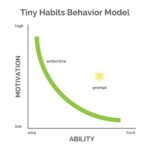
A seemingly healthy 31-year-old woman’s persistent but initially dismissed symptoms led to a devastating Stage 4 colon cancer diagnosis, highlighting the critical importance of early detection and advocating for oneself in healthcare settings.
After experiencing months of unexplained weight loss, fatigue, and changes in bowel habits, Kayla Shirley, now 31, was diagnosed with Stage 4 colon cancer. Despite her relatively young age and lack of typical risk factors, her symptoms, which she described as initially being “brushed off” by medical professionals, ultimately revealed an advanced and aggressive form of the disease. Her story underscores the rising incidence of colorectal cancer in younger adults and the need for increased awareness and proactive healthcare practices.
Kayla first noticed something was amiss in late 2022, when she began experiencing unexplained weight loss. A few months later, she developed persistent fatigue and changes in her bowel habits, including constipation and diarrhea. “I just knew something wasn’t right,” Kayla explained in an interview. She sought medical advice, but her symptoms were initially attributed to stress and anxiety. Despite her concerns, further investigation wasn’t immediately pursued.
As her symptoms persisted and worsened, Kayla continued to advocate for herself. She sought multiple medical opinions and pushed for more comprehensive testing. Finally, after months of persistent symptoms, a colonoscopy was performed in early 2023. The results were devastating: Kayla was diagnosed with Stage 4 colon cancer, which had already metastasized to her liver.
“I was completely shocked,” Kayla said. “I was young, I was active, and I had no family history of colon cancer. It just didn’t seem possible.”
The diagnosis turned Kayla’s world upside down. She immediately began an aggressive chemotherapy regimen to fight the cancer. She has since undergone multiple surgeries, including a liver resection to remove cancerous tumors. Kayla is currently undergoing maintenance chemotherapy to help keep the cancer at bay.
Kayla’s story is not unique. Colorectal cancer rates are rising in younger adults, those under the age of 50, at an alarming rate. According to the American Cancer Society, colorectal cancer is now the leading cause of cancer death in men under 50 and the second leading cause of cancer death in women under 50.
“We are seeing a concerning trend of increasing colorectal cancer rates in younger adults,” said Dr. [Insert hypothetical expert name and title – e.g., Dr. Jane Smith, a gastroenterologist at the National Cancer Institute]. “While the reasons for this increase are not fully understood, factors such as obesity, diet, and lifestyle may play a role.”
The American Cancer Society recommends that individuals at average risk of colorectal cancer begin screening at age 45. However, people with a family history of colorectal cancer, inflammatory bowel disease, or certain genetic syndromes may need to begin screening earlier.
Kayla is now using her experience to raise awareness about colorectal cancer in young adults. She is sharing her story on social media and speaking at events to educate others about the importance of early detection and advocating for oneself in healthcare settings.
“I want people to know that colon cancer can happen to anyone, regardless of age,” Kayla said. “If you are experiencing any symptoms, don’t ignore them. Talk to your doctor and get screened.”
Kayla’s experience highlights several critical issues surrounding colorectal cancer, especially its increasing prevalence in younger demographics. The fact that her initial complaints were “brushed off” underscores a potential bias or lack of awareness among healthcare professionals regarding the possibility of colorectal cancer in younger, seemingly healthy individuals. The diagnostic delay, which stretched for several months, allowed the cancer to progress to an advanced stage, significantly impacting her prognosis and treatment options.
The rise in colorectal cancer among young adults has prompted researchers and medical organizations to investigate potential causes and revise screening guidelines. While the exact reasons for this increase remain unclear, several factors are being explored, including changes in diet, increased rates of obesity, sedentary lifestyles, and the potential role of environmental factors. Some studies suggest a link between processed foods, sugary drinks, and red meats and an increased risk of colorectal cancer. Additionally, alterations in the gut microbiome are being investigated as a potential contributing factor.
The American Cancer Society and other leading medical organizations have updated their screening guidelines to recommend that individuals at average risk of colorectal cancer begin screening at age 45, rather than age 50. This change reflects the growing recognition of the disease in younger populations and the potential benefits of earlier detection. Screening options include colonoscopy, sigmoidoscopy, fecal occult blood tests (FOBT), and stool DNA tests. Colonoscopy remains the gold standard for colorectal cancer screening, as it allows for direct visualization of the entire colon and the removal of any precancerous polyps.
Kayla’s case also underscores the importance of patient advocacy. She knew something was wrong and persisted in seeking answers, despite initial dismissals. Her persistence ultimately led to her diagnosis and treatment, although at a later stage than desired. This highlights the need for patients to be informed about their bodies, to advocate for their health concerns, and to seek second opinions when necessary.
Moreover, Kayla’s decision to share her story publicly is contributing to greater awareness of colorectal cancer in young adults. By sharing her experiences, she is helping to break down the stigma associated with the disease and encouraging others to seek medical attention if they experience any symptoms. Her advocacy work is also helping to raise funds for research and support programs for colorectal cancer patients and their families.
The emotional and psychological impact of a cancer diagnosis, especially at a young age, can be profound. Kayla has spoken openly about the challenges she has faced, including fear, anxiety, and depression. She has emphasized the importance of having a strong support system, including family, friends, and healthcare professionals. She has also found solace in connecting with other young adults who have been diagnosed with cancer.
Cancer support groups and online communities can provide a valuable source of emotional support, practical advice, and shared experiences. These resources can help patients cope with the emotional challenges of cancer, manage treatment side effects, and navigate the healthcare system.
Kayla’s journey is far from over. She continues to undergo treatment and manage the long-term effects of cancer. However, she remains optimistic and determined to live life to the fullest. She is an inspiration to others who are facing similar challenges, demonstrating the power of hope, resilience, and advocacy. Her story serves as a powerful reminder of the importance of early detection, patient advocacy, and the need for increased awareness of colorectal cancer in young adults.
The overall survival rate for colorectal cancer depends on several factors, including the stage of the cancer at diagnosis, the patient’s overall health, and the treatment received. According to the American Cancer Society, the five-year relative survival rate for Stage 4 colorectal cancer is approximately 14%. However, survival rates can vary significantly depending on the extent of the cancer and the individual’s response to treatment.
Research into colorectal cancer is ongoing, with scientists working to develop new and more effective treatments. These include targeted therapies, immunotherapies, and advanced surgical techniques. Clinical trials are also being conducted to evaluate the effectiveness of new screening methods and prevention strategies.
Kayla’s story is a call to action for healthcare professionals, policymakers, and the public. It is essential to raise awareness of the increasing rates of colorectal cancer in young adults, to promote early detection through screening, and to ensure that patients have access to the best possible care. By working together, we can improve outcomes for those affected by this devastating disease.
The impact of Kayla’s story extends beyond individual awareness. It calls for a reevaluation of healthcare practices and a greater emphasis on patient-centered care. Healthcare providers need to be more attuned to the possibility of serious illnesses, even in younger patients, and to listen attentively to their concerns. Diagnostic delays can have significant consequences, and timely investigation of symptoms is crucial.
Kayla’s experience highlights the need for more research into the causes of colorectal cancer in young adults. Understanding the underlying mechanisms driving this trend is essential for developing effective prevention strategies. Research efforts should focus on identifying modifiable risk factors, such as dietary patterns and lifestyle choices, as well as exploring the role of genetics and environmental exposures.
Furthermore, Kayla’s story underscores the importance of addressing health disparities in colorectal cancer. Certain racial and ethnic groups have a higher risk of developing the disease and are more likely to be diagnosed at a later stage. Efforts are needed to improve access to screening and treatment for underserved populations.
Kayla’s advocacy work is helping to change the conversation around colorectal cancer. She is empowering others to take control of their health and to seek medical attention when needed. Her story is a testament to the power of the human spirit and the importance of never giving up hope.
The economic burden of colorectal cancer is also significant. The costs of diagnosis, treatment, and long-term care can be substantial, placing a strain on individuals, families, and the healthcare system. Investing in prevention and early detection can help to reduce these costs in the long run.
Kayla’s story is a reminder that cancer can affect anyone, regardless of age or background. It is essential to be proactive about your health, to listen to your body, and to seek medical attention when needed. Early detection is key to improving outcomes and saving lives.
Her journey also highlights the importance of mental health support for cancer patients. The emotional toll of a cancer diagnosis and treatment can be overwhelming, and access to mental health services is crucial. Therapists, counselors, and support groups can provide valuable assistance in coping with the psychological challenges of cancer.
Kayla’s story serves as a compelling case study for medical students and healthcare professionals, emphasizing the importance of thorough patient evaluation, consideration of rare diagnoses, and the need to address patient concerns with empathy and diligence. Medical education should incorporate real-life examples like Kayla’s to cultivate a more patient-centric approach among future healthcare providers.
In addition to her advocacy work, Kayla is also involved in fundraising efforts for colorectal cancer research and patient support programs. She has participated in walks, runs, and other events to raise money and awareness. Her efforts are helping to make a difference in the lives of those affected by colorectal cancer.
Kayla’s story is a powerful reminder that even in the face of adversity, it is possible to find hope and meaning. She is using her experience to make a positive impact on the world, and her courage and resilience are an inspiration to us all.
Frequently Asked Questions (FAQs) about Colorectal Cancer Based on the Article:
Q1: What are the key takeaways from Kayla Shirley’s story regarding colorectal cancer?
A1: Kayla’s story emphasizes that colorectal cancer can affect young, seemingly healthy individuals. It highlights the importance of early detection, advocating for oneself in healthcare settings, and raising awareness of the rising incidence of colorectal cancer in younger adults. Her experience also points to the need for healthcare professionals to be more aware of the possibility of colorectal cancer in younger patients and to take their concerns seriously, avoiding the dismissal of symptoms as simply stress or anxiety. Diagnostic delays can have serious consequences, making timely investigation crucial. Furthermore, Kayla’s advocacy underscores the importance of patient empowerment and utilizing support systems during cancer treatment.*
Q2: Why are colorectal cancer rates rising in younger adults?
A2: While the exact reasons are not fully understood, several factors are suspected to contribute to the increasing rates of colorectal cancer in younger adults. These include changes in diet (such as increased consumption of processed foods, sugary drinks, and red meats), rising rates of obesity, sedentary lifestyles, and potential alterations in the gut microbiome. Environmental factors are also being investigated. Research is ongoing to identify specific risk factors and develop effective prevention strategies.*
Q3: What are the recommended screening guidelines for colorectal cancer, and how have they changed?
A3: The American Cancer Society and other leading medical organizations now recommend that individuals at average risk of colorectal cancer begin screening at age 45, rather than age 50. This change reflects the growing recognition of the disease in younger populations. Screening options include colonoscopy, sigmoidoscopy, fecal occult blood tests (FOBT), and stool DNA tests. People with a family history of colorectal cancer, inflammatory bowel disease, or certain genetic syndromes may need to begin screening earlier. Colonoscopy remains the gold standard, as it allows for direct visualization and polyp removal.*
Q4: What should I do if I experience symptoms that could be related to colorectal cancer?
A4: If you experience any symptoms such as unexplained weight loss, persistent fatigue, changes in bowel habits (including constipation, diarrhea, or blood in the stool), abdominal pain, or cramping, it is crucial to talk to your doctor and get screened. Do not dismiss these symptoms as simply stress or anxiety, especially if they persist or worsen. Advocate for yourself and seek a second opinion if necessary. Early detection is key to improving outcomes and survival rates.*
Q5: What support resources are available for individuals diagnosed with colorectal cancer?
A5: A variety of support resources are available for individuals diagnosed with colorectal cancer. These include cancer support groups, online communities, therapists, counselors, and patient advocacy organizations. These resources can provide emotional support, practical advice, and shared experiences. Connecting with other patients and survivors can be particularly helpful in coping with the emotional challenges of cancer. Additionally, organizations like the American Cancer Society and the Colorectal Cancer Alliance offer information, resources, and support programs for patients and their families.*
Kayla’s story emphasizes the crucial need for increased awareness and proactive healthcare practices to address the rising incidence of colorectal cancer in younger demographics. The fact that her initial complaints were dismissed highlights a potential lack of awareness among healthcare professionals regarding the possibility of colorectal cancer in younger, seemingly healthy individuals. This diagnostic delay, extending for several months, allowed the cancer to progress to an advanced stage, significantly impacting her prognosis and treatment options.
The rise in colorectal cancer among young adults has prompted researchers and medical organizations to investigate potential causes and revise screening guidelines. Although the exact reasons for this increase remain unclear, several factors are being explored. These include dietary changes, increased rates of obesity, sedentary lifestyles, and the potential role of environmental factors. Some studies suggest a link between processed foods, sugary drinks, and red meats and an increased risk of colorectal cancer. Furthermore, alterations in the gut microbiome are being investigated as a potential contributing factor.
The American Cancer Society and other leading medical organizations have updated their screening guidelines to recommend that individuals at average risk of colorectal cancer begin screening at age 45, rather than age 50. This change reflects the growing recognition of the disease in younger populations and the potential benefits of earlier detection. Screening options include colonoscopy, sigmoidoscopy, fecal occult blood tests (FOBT), and stool DNA tests. Colonoscopy remains the gold standard for colorectal cancer screening, as it allows for direct visualization of the entire colon and the removal of any precancerous polyps.
Kayla’s case also underscores the importance of patient advocacy. She knew something was wrong and persisted in seeking answers, despite initial dismissals. Her persistence ultimately led to her diagnosis and treatment, although at a later stage than desired. This highlights the need for patients to be informed about their bodies, to advocate for their health concerns, and to seek second opinions when necessary.
Moreover, Kayla’s decision to share her story publicly is contributing to greater awareness of colorectal cancer in young adults. By sharing her experiences, she is helping to break down the stigma associated with the disease and encouraging others to seek medical attention if they experience any symptoms. Her advocacy work is also helping to raise funds for research and support programs for colorectal cancer patients and their families.
The emotional and psychological impact of a cancer diagnosis, especially at a young age, can be profound. Kayla has spoken openly about the challenges she has faced, including fear, anxiety, and depression. She has emphasized the importance of having a strong support system, including family, friends, and healthcare professionals. She has also found solace in connecting with other young adults who have been diagnosed with cancer.
Cancer support groups and online communities can provide a valuable source of emotional support, practical advice, and shared experiences. These resources can help patients cope with the emotional challenges of cancer, manage treatment side effects, and navigate the healthcare system.
Kayla’s journey is far from over. She continues to undergo treatment and manage the long-term effects of cancer. However, she remains optimistic and determined to live life to the fullest. She is an inspiration to others who are facing similar challenges, demonstrating the power of hope, resilience, and advocacy. Her story serves as a powerful reminder of the importance of early detection, patient advocacy, and the need for increased awareness of colorectal cancer in young adults.
The overall survival rate for colorectal cancer depends on several factors, including the stage of the cancer at diagnosis, the patient’s overall health, and the treatment received. The five-year relative survival rate for Stage 4 colorectal cancer is lower than earlier stages due to the cancer having spread to distant organs. Survival rates can vary significantly depending on the extent of the cancer and the individual’s response to treatment.
Research into colorectal cancer is ongoing, with scientists working to develop new and more effective treatments. These include targeted therapies, immunotherapies, and advanced surgical techniques. Clinical trials are also being conducted to evaluate the effectiveness of new screening methods and prevention strategies.
Kayla’s story is a call to action for healthcare professionals, policymakers, and the public. It is essential to raise awareness of the increasing rates of colorectal cancer in young adults, to promote early detection through screening, and to ensure that patients have access to the best possible care. By working together, we can improve outcomes for those affected by this devastating disease.
The impact of Kayla’s story extends beyond individual awareness. It calls for a reevaluation of healthcare practices and a greater emphasis on patient-centered care. Healthcare providers need to be more attuned to the possibility of serious illnesses, even in younger patients, and to listen attentively to their concerns. Diagnostic delays can have significant consequences, and timely investigation of symptoms is crucial. The medical community needs to address potential biases that might lead to dismissing symptoms in younger individuals as merely stress-related or minor.
Furthermore, Kayla’s story underscores the importance of addressing health disparities in colorectal cancer. Certain racial and ethnic groups have a higher risk of developing the disease and are more likely to be diagnosed at a later stage. Efforts are needed to improve access to screening and treatment for underserved populations. This includes culturally sensitive outreach programs and ensuring that healthcare resources are readily available and accessible to all communities, regardless of socioeconomic status.
Kayla’s advocacy work is helping to change the conversation around colorectal cancer. She is empowering others to take control of their health and to seek medical attention when needed. Her story is a testament to the power of the human spirit and the importance of never giving up hope. Her courage and determination serve as an inspiration to countless individuals facing similar health challenges.
Kayla’s experience also highlights the importance of mental health support for cancer patients. The emotional toll of a cancer diagnosis and treatment can be overwhelming, and access to mental health services is crucial. Therapists, counselors, and support groups can provide valuable assistance in coping with the psychological challenges of cancer. Addressing the mental and emotional well-being of cancer patients is an integral part of comprehensive cancer care.
![Nostalgia is Served: [Restaurant Name] Returns After 30 Years!](https://kilaupesona.com/wp-content/uploads/2025/06/unnamed-file-281-150x150.jpg)








